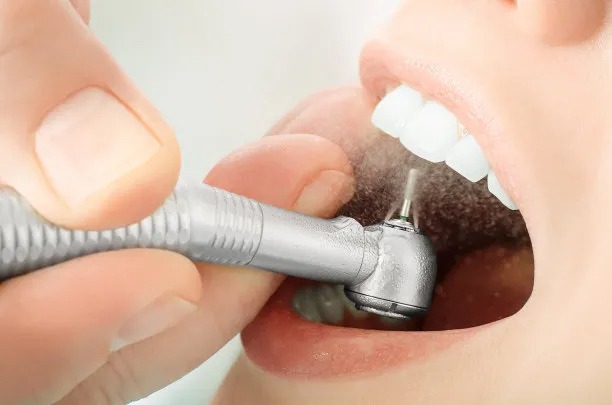Essential Precautions to Follow for a Successful Root Canal Treatment and Ensuring Optimal Oral Health
Summary: Root canal treatment can be a daunting procedure for many, but it is essential for saving a tooth compromised by decay or infection. To ensure a successful outcome and maintain optimal oral health, it is important to follow specific precautions. This article outlines four critical areas of focus: the importance of selecting a skilled dentist, understanding the treatment process, post-treatment care, and regular dental check-ups. By paying attention to these essential aspects, patients can maximize their chances of a successful root canal procedure and enjoy a healthier smile.
1. Selecting a Skilled Dentist for Treatment

Choosing the right dentist is paramount to a successful root canal treatment. Not all dentists have the same level of experience and expertise, so it’s vital to do your research. Look for a dentist who specializes in endodontics, which is the field focusing specifically on root canals. Reading reviews and testimonials from previous patients can provide insights into their skills and overall patient care.
Moreover, don’t hesitate to ask your dentist questions about their qualifications and experiences. Understanding their approach to treatment, including the techniques they use and the technology available, can help you feel more confident. A skilled dentist will explain the procedure step by step, which can alleviate anxiety about the process.
Establishing a good rapport with your dentist is also essential. A comfortable dental environment can make a significant difference in managing fear and anxiety. Patients are encouraged to seek consultations with potential dentists before making a final decision. The right dentist will prioritize patient comfort and provide reassurance throughout the treatment process.
2. Understanding the Treatment Process Thoroughly
Before undergoing a root canal, it’s crucial to understand the treatment process. The procedure typically involves several key steps: diagnosis, anesthesia, cleaning the canal, filling, and sealing. Knowing what to expect helps in reducing apprehension. Your dentist will likely take X-rays to diagnose the issue accurately and determine the extent of decay.
During the procedure, local anesthesia is administered to ensure you are pain-free. This part of the process is especially important, as discomfort during treatment can lead to negative associations with dental visits. Once numb, the dentist will create an opening in the tooth to access the infected pulp, removing the damaged tissue and cleaning the canal thoroughly.
After cleaning, the canal is filled with a biocompatible material that seals it off from future infection. Finally, a crown or permanent filling is placed to restore the tooth’s function and appearance. Fully understanding these steps can help demystify the procedure and foster a sense of control over your dental health.
3. Post-Treatment Care is Essential
Post-treatment care plays a vital role in ensuring the success of a root canal procedure. After the anesthesia wears off, some discomfort or tenderness can be expected, but this should be manageable with over-the-counter pain relief. It’s important to follow any specific instructions provided by your dentist regarding pain management and lifestyle adjustments.
Maintaining good oral hygiene after the treatment is crucial. Gently brush and floss your teeth while being careful around the treated tooth. Avoid hard or chewy foods for a few days until your tooth feels normal again. Following these recommendations can help speed up recovery and prevent any complications.
If you notice any unusual symptoms such as increased pain, swelling, or signs of infection, it is important to contact your dentist immediately. Prompt attention to any irregularities can save your tooth and prevent further health issues. Regular follow-ups are important and allow your dentist to monitor your healing progress.
4. Importance of Regular Dental Check-Ups
Regular dental check-ups are essential for maintaining optimal oral health, particularly after undergoing a root canal treatment. These visits allow your dentist to evaluate the health of the treated tooth and surrounding gums. They can identify potential problems early, which is key to addressing issues before they escalate.
Dental cleanings during these visits also help remove plaque and tartar buildup, reducing the risk of further dental issues. A clean mouth promotes overall oral health and can lengthen the lifespan of the treated tooth. Moreover, dentists can provide personalized advice on maintaining good oral hygiene habits at home.
In some cases, a root canal treated tooth may require additional procedures years later. Regular check-ups ensure that any signs of complications are addressed promptly, securing the treatments long-term success. Keeping a consistent schedule for dental visits is a proactive step towards a healthy smile.
Summary:
In summary, following essential precautions for a successful root canal treatment involves several critical steps. Selecting a skilled dentist, understanding the treatment process, adhering to post-treatment care, and maintaining regular check-ups are pivotal for ensuring optimal oral health. By being proactive, patients can avert potential complications and extend the life of their teeth. Investing in these precautions is a worthy endeavor for anyone seeking to maintain a healthy and confident smile.
This article is compiled by Vickong Dental and the content is for reference only.


